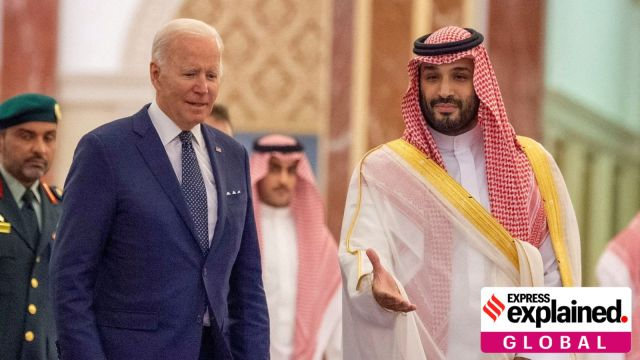





Disclaimer: Copyright infringement is not intended.
Context:
Civil Nuclear Cooperation Agreement:
|
Saudi Arabia's Interest in a Civil Nuclear Deal |
●Despite being a major oil exporter, Saudi Arabia aims to diversify its energy sources and reduce emissions under Vision 2030. Nuclear energy is seen as a potential component of this plan. ●Critics express concerns that Saudi Arabia might seek nuclear expertise for potential weapons development, especially considering its stance on following suit if Iran acquires nuclear weapons. |
|
Potential Benefits for the United States |
●Strategically, a civil nuclear deal could contribute to broader goals such as normalizing relations between Saudi Arabia and Israel. ●It could enhance Israel's security, strengthen the coalition against Iran, and enhance U.S. ties with Saudi Arabia amid growing Chinese influence in the Gulf. ●Commercially, U.S. companies could secure contracts to build nuclear power plants in Saudi Arabia, competing with other global players like Russia and China. |
|
Key Issues in a Saudi-U.S. Nuclear Deal: |
●The potential establishment of a uranium enrichment facility on Saudi territory raises concerns about proliferation risks and control over the facility. ●Other issues include Saudi investment in U.S.-owned uranium enrichment plants and contracting U.S. companies for building nuclear reactors in Saudi Arabia. |
Conclusion: Safeguards are essential to prevent Saudi Arabia from using enrichment facilities for weapons development.
Source:
https://indianexpress.com/article/explained/explained-global/us-saudi-civil-nuclear-deal-9337350/
|
PRACTICE QUESTION Q. Talks for civil nuclear deal between US and Saudi Arabia raises concerns over nuclearisation of Arabian Peninsula. Critically Analyse.(250 words) |






© 2026 iasgyan. All right reserved